Seobin Park
Image Restoration by Solving IVP
Feb 05, 2021



Abstract:Recent research on image restoration have achieved great success with the aid of deep learning technologies, but, many of them are limited to dealing SR with realistic settings. To alleviate this problem, we introduce a new formulation for image super-resolution to solve arbitrary scale image super-resolution methods. Based on the proposed new SR formulation, we can not only super-resolve images with multiple scales, but also find a new way to analyze the performance of super-resolving process. We demonstrate that the proposed method can generate high-quality images unlike conventional SR methods.
Restore from Restored: Video Restoration with Pseudo Clean Video
Mar 09, 2020
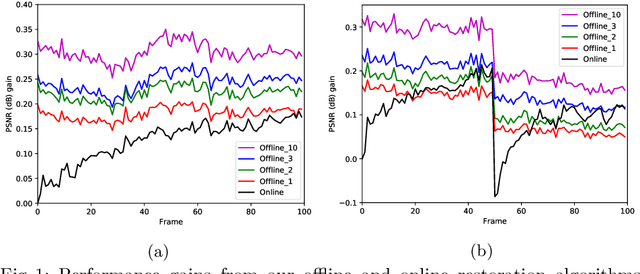
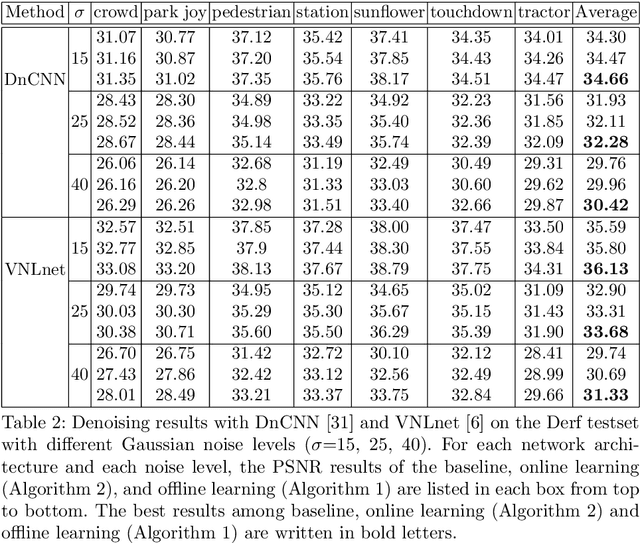
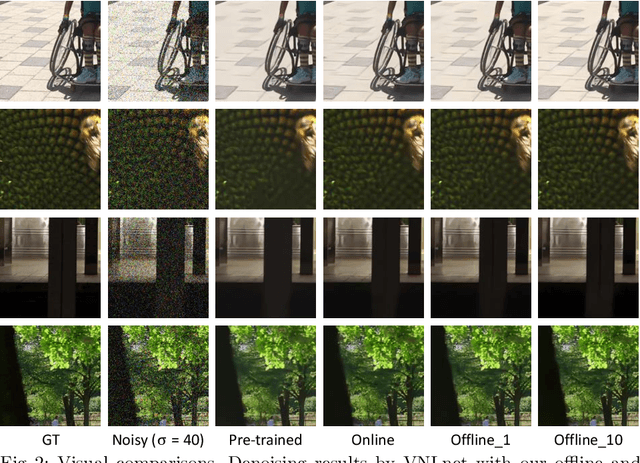
Abstract:In this paper, we propose a self-supervised video denoising method called "restore-from-restored" that fine-tunes a baseline network by using a pseudo clean video at the test phase. The pseudo clean video can be obtained by applying an input noisy video to the pre-trained baseline network. By adopting a fully convolutional network (FCN) as the baseline, we can restore videos without accurate optical flow and registration due to its translation-invariant property unlike many conventional video restoration methods. Moreover, the proposed method can take advantage of the existence of many similar patches across consecutive frames (i.e., patch-recurrence), which can boost performance of the baseline network by a large margin. We analyze the restoration performance of the FCN fine-tuned with the proposed self-supervision-based training algorithm, and demonstrate that FCN can utilize recurring patches without the need for registration among adjacent frames. The proposed method can be applied to any FCN-based denoising models. In our experiments, we apply the proposed method to the state-of-the-art denoisers, and our results indicate a considerable improvementin task performance.
Fast Adaptation to Super-Resolution Networks via Meta-Learning
Jan 14, 2020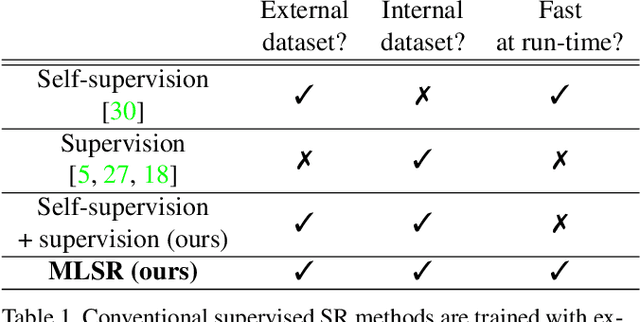
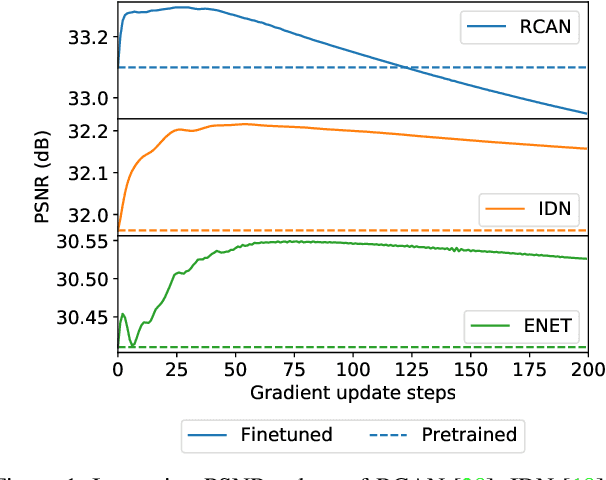

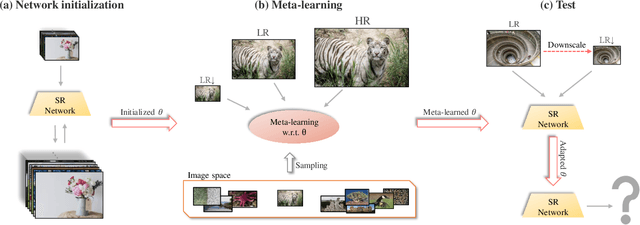
Abstract:Conventional supervised super-resolution (SR) approaches are trained with massive external SR datasets but fail to exploit desirable properties of the given test image. On the other hand, self-supervised SR approaches utilize the internal information within a test image but suffer from computational complexity in run-time. In this work, we observe the opportunity for further improvement of the performance of SISR without changing the architecture of conventional SR networks by practically exploiting additional information given from the input image. In the training stage, we train the network via meta-learning; thus, the network can quickly adapt to any input image at test time. Then, in the test stage, parameters of this meta-learned network are rapidly fine-tuned with only a few iterations by only using the given low-resolution image. The adaptation at the test time takes full advantage of patch-recurrence property observed in natural images. Our method effectively handles unknown SR kernels and can be applied to any existing model. We demonstrate that the proposed model-agnostic approach consistently improves the performance of conventional SR networks on various benchmark SR datasets.
 Add to Chrome
Add to Chrome Add to Firefox
Add to Firefox Add to Edge
Add to Edge